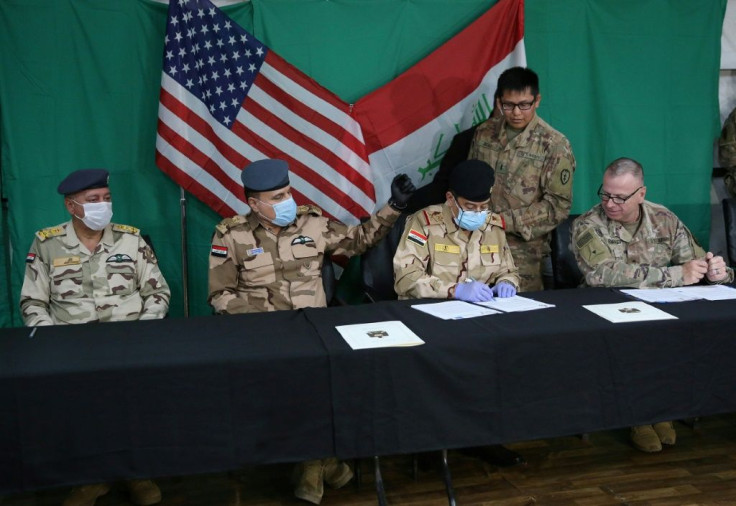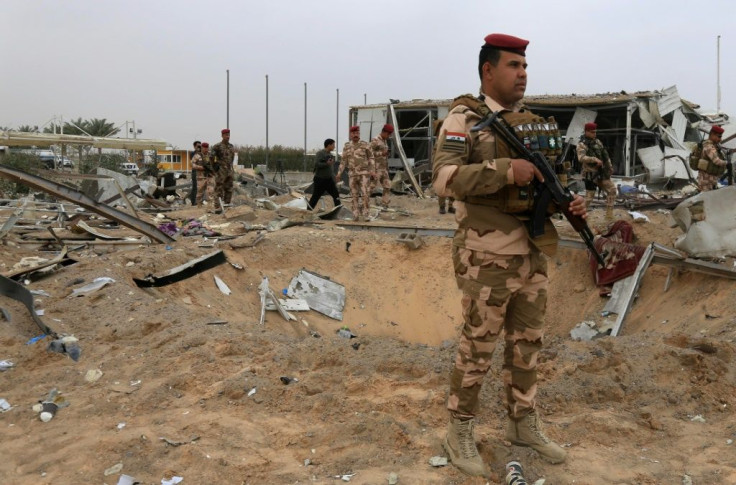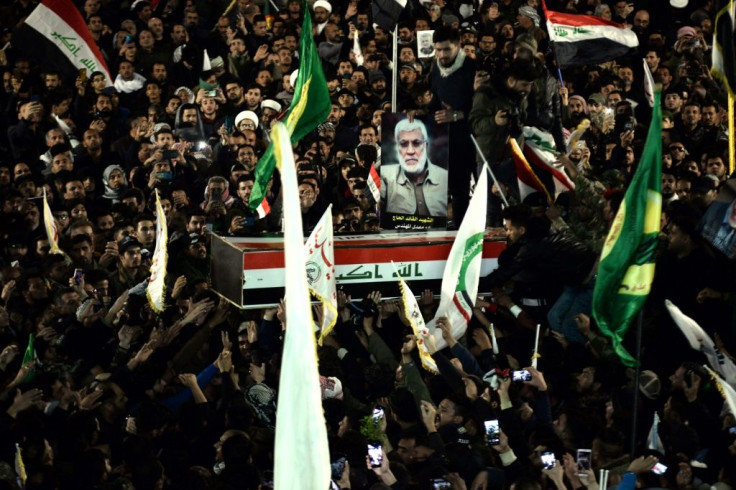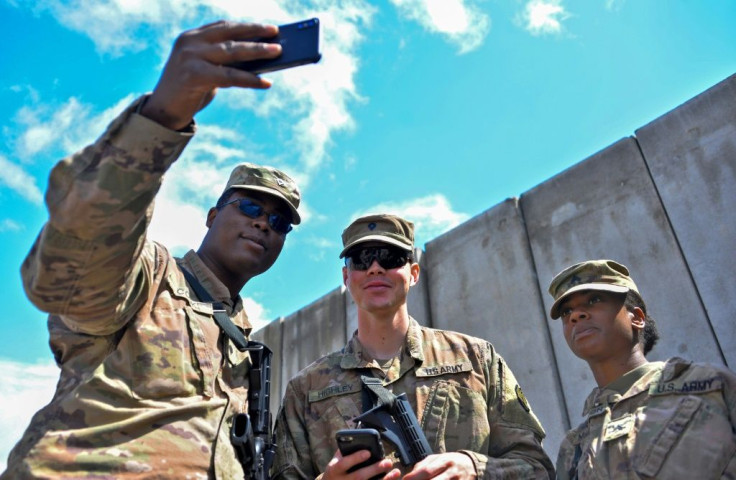Iraq, US Find New Stability In Talks After Tensions

After months of tensions, Baghdad and Washington found a fresh stability in their ties Thursday as they held strategic talks Thursday under a new, US-friendly Iraqi premier.
Due to coronavirus travel restrictions, top-level talks expected to take place in Baghdad were demoted to a brief online kick-off session, as Iraq faces a spike in cases as well as a looming financial crisis.
That tempered expectations for the first strategic dialogue between Iraq and the US in a decade, which came five months after Iraqi lawmakers demanded that US troops leave.
David Schenker, the top US diplomat for the Middle East, said that a withdrawal of US forces did not even come up in the initial discussions.
Instead, he said that Iraq promised to protect US military and diplomatic facilities -- which have come under fire from pro-Iranian forces -- and that Washington assured an economic lifeline.
"We will support the new government through the international financial institutions to help it meet the challenge of COVID-19 and declining oil revenues," Schenker told reporters.
Tensions skyrocketed following a US strike on Baghdad in January that killed Iranian general Qasem Soleimani and Iraqi commander Abu Mahdi al-Muhandis.
Washington threatened crippling sanctions if obliged to withdraw troops and, according to US military sources, began planning a vast bombing spree against groups blamed for the rockets.

But the tensions have calmed substantially since Mustafa Kadhemi -- an ex-spy chief with close ties to the US and its allies in the region -- took the reins as Iraq's premier in May.
"The entire US-Iraq bilateral relationship will not be fixed in a single day," said Robert Ford, an analyst at the Middle East Institute and a US diplomat in Baghdad during the last round of strategic talks in 2008, which ironed out the US drawdown from the occupation that began after the 2003 invasion to topple Saddam Hussein.
"But for once, we seem to have the right people in the right place at the right time," he said.
Two Iraqi officials said Kadhemi has been invited to the White House this year, a diplomatic olive branch his predecessor Adel Abdel Mahdi had never received.

"There was a lack of confidence in the relationship with the previous government, and we're not there anymore," one of the officials said.
Further sessions of the dialogue cold provide guidance for US-led troops, who returned in 2014 to head a military coalition fighting the Islamic State group.
"Whatever comes out of the dialogue is going to set the future of our strategic relationship," a top American official from the coalition told AFP.
"Am I still going to fly surveillance drones or not? Do you still want our intelligence?" he added.

The coalition has already consolidated to just three bases in recent months, down from a dozen.
A dramatic or sudden drop could hamper the coalition's efforts to back an Iraqi fightback against IS sleeper cells, which have escalated attacks in recent weeks.
Other coalition countries are watching from the sidelines, with no formal role in the negotiations.
"The ability of non-US members of the coalition to be in Iraq depends on whether the US can stay. We're tied down by this dialogue, too," a Western diplomat told AFP.
Iran and its allies in Iraq, which have vowed to oust US troops, are also keeping a close eye on the talks.
Many reiterated calls for foreign forces to leave, with the spokesman for the pro-Iran Fatah bloc, Ahmad al-Assadi, insisting on a six-month deadline for their departure.
On Monday and Wednesday, two rockets hit near Baghdad airport and the American Embassy, after weeks of calm.
But the rhetoric was more tempered than usual, with even the hardline Kataeb Hezbollah saying it would take a formal stance on the talks only after the first session.
"These groups are retrenching, which gives Kadhemi some space with the Americans," said Ford.
Iraq's economy relies almost exclusively on oil exports, with faltering prices and low demand drastically shrinking the government's ability to pay wages, pensions and welfare to eight million Iraqis.
A US waiver protecting Iraq from American sanctions as it imports gas from neighbouring Iran for its dilapidated power sector is due to expire in late September.
Schenker said the United States would consider injecting cash into Iraq's universities.
The talks are also geared to produce long-term support, like infrastructure upgrades using American energy companies.
But Iraq needs an immediate crutch.
"The US won't provide all kinds of cash. They can just offer not to apply sanctions," said Ford.
"That doesn't fix Kadhemi's single biggest problem," he said -- a lack of hard cash.
© Copyright AFP {{Year}}. All rights reserved.





















